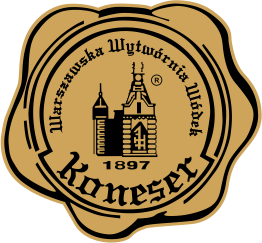The production of vodka from potatoes in Poland is a traditional and well-known process that has its roots in the 18th century. Potato vodka is considered to be one of the purest and mildest varieties of this alcohol, and it contains few impurities.
Potato vodkas are, above all, much milder than grain vodkas. Their taste is more subtle and clear. Although still not everyone appreciates potato vodka, more and more companies are betting on the production of this drink, often with great success. It is interesting that until recently Polish potato vodka enjoyed more recognition abroad than in Poland, but in recent years we have also noticed a growing interest in potato vodkas.
Potato vodka definitely stands out on the Polish market traditionally dominated by grain vodkas. Potato vodka is produced from selected types of potatoes with a high starch content, thanks to which it owes its delicate and mild taste. Potato vodka should have a velvety consistency and a fairly neutral aroma. The production of potato vodka is a slightly more complex process than the production of grain vodkas. Potatoes are also less efficient than cereals, because only 120 liters of spirit can be produced from 1 ton of potatoes. For this reason, potato vodkas are usually more expensive than grain vodkas.
At Koneser, we produce excellent vodka from a special variety of potatoes – Metropolis.
As I have already mentioned, carefully selected raw materials should be used for the production of potato vodka. A good quality potato for processing should have a high starch content. The more of it there is, the more creamy and pleasant the taste of the vodka will be. The potato vodka production process in Poland consists of several stages:
- Growing and harvesting potatoes: After harvesting, the potatoes are carefully sorted in terms of quality and size, then thoroughly cleaned and cut into small pieces.
- Fermentation: Potatoes are cooked in large vats. As a result of the evaporation phase, mashing occurs, i.e. the process responsible for the breakdown into sugars and liquefaction of the starch. Yeast and sugar are then added to the potatoes to start the fermentation process. Fermentation takes about a week, during which alcohol and carbon dioxide are produced by the yeast.
- Distillation: After fermentation, the resulting liquid is distilled in special distillation apparatuses to separate the alcohol from the rest of the ingredients. Distillation is repeated several times to obtain a high-quality vodka with a strength of approximately 95%.
- Dilution and filtration: In the final stage of production, vodka is diluted to the desired strength (usually around 40%) with demineralized or distilled water. The vodka is also filtered through activated carbon or other substances to remove any unwanted odors and flavors.
- Bottling and labeling: The vodka is bottled and labeled with information about the producer, production date, composition and alcohol content. The vodka is ready to be consumed or stored.
When considering the purchase, it is worth paying attention to the ingredients and the price of alcohol. Potato vodka gains in value through better quality potatoes and higher starch content.
When choosing potato vodka, it is worth betting on our Metroplis vodka produced from special varieties of selected, high-starch potatoes. It is a real gem that will satisfy the taste buds of even the most demanding connoisseurs.


























